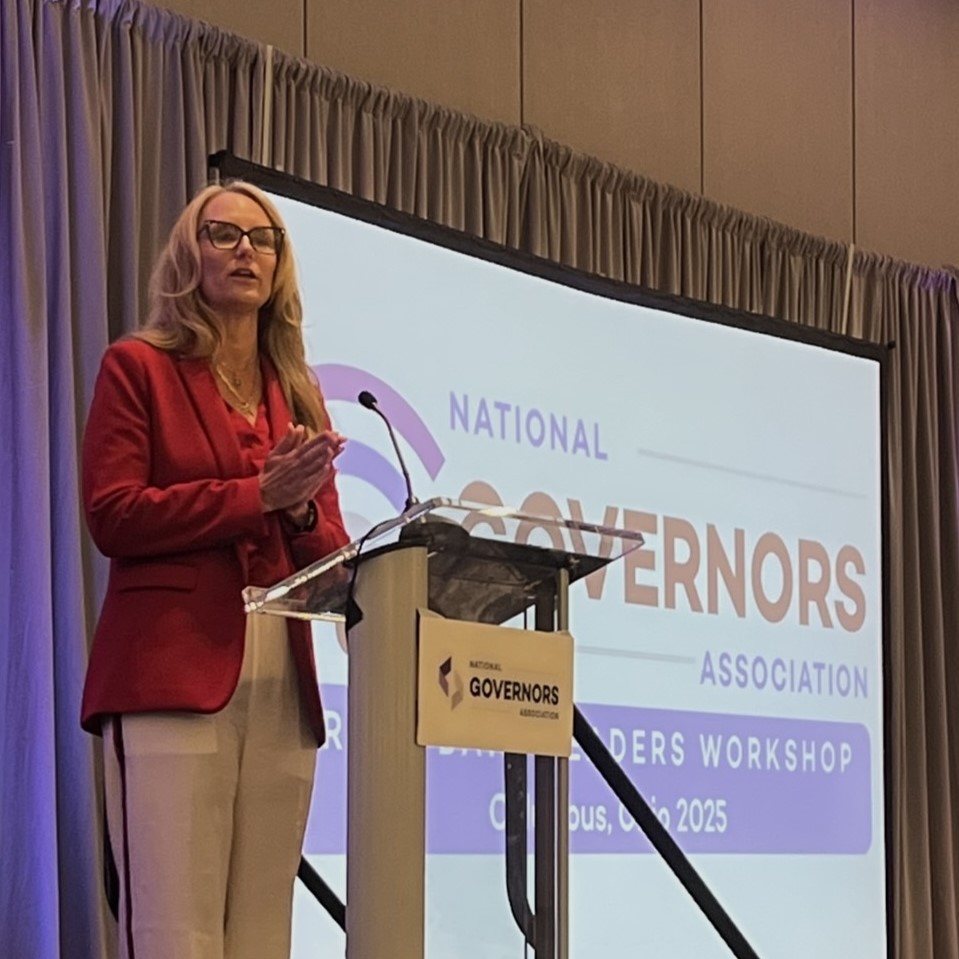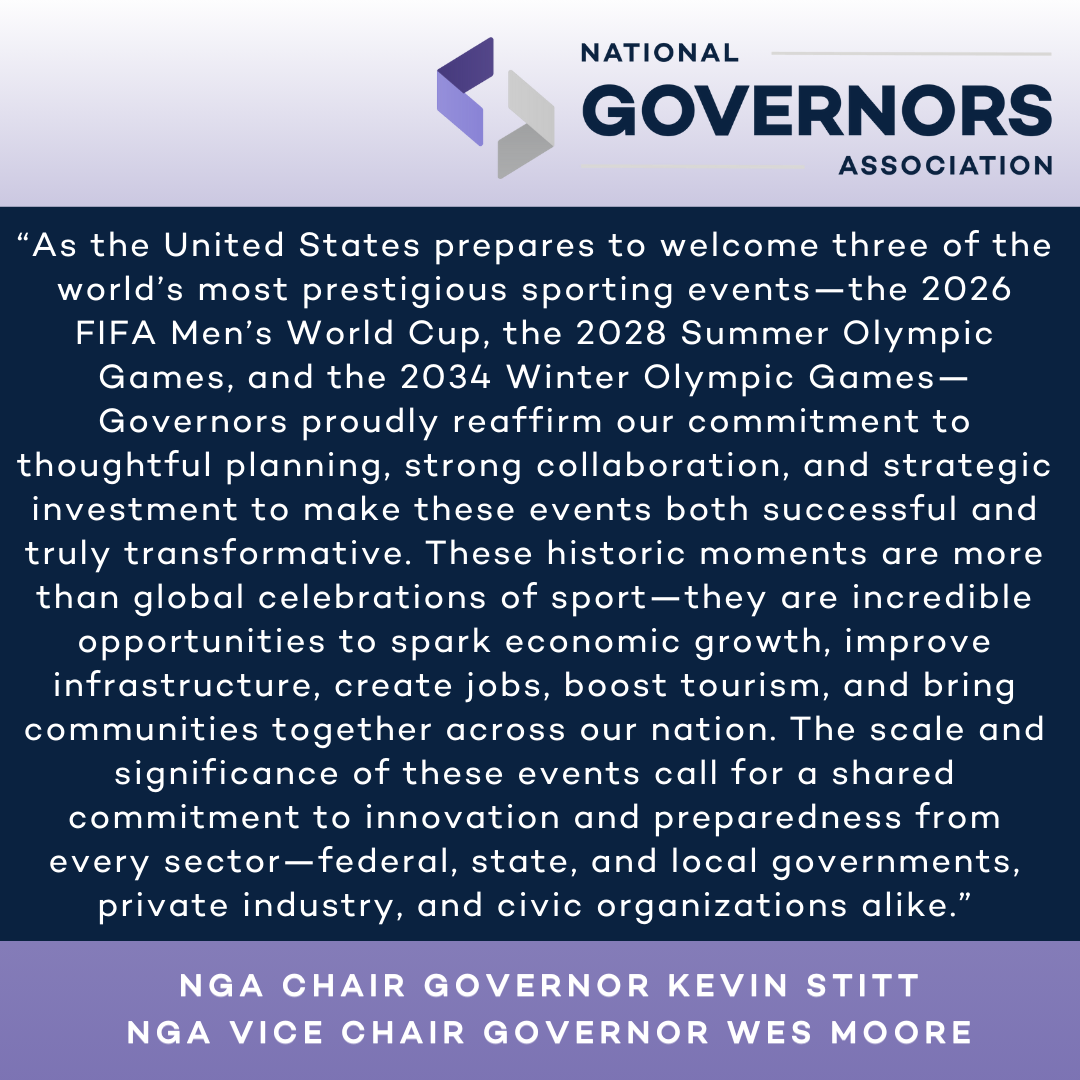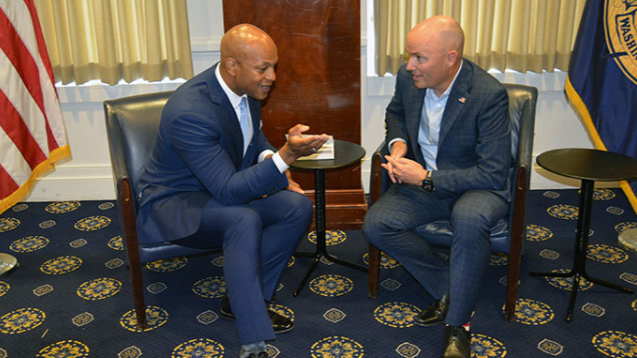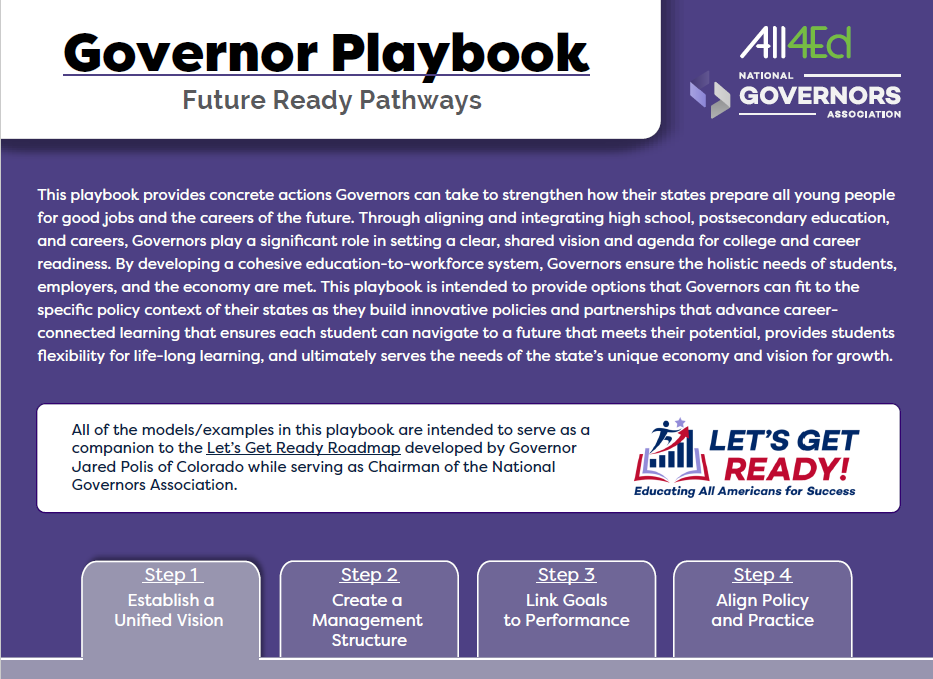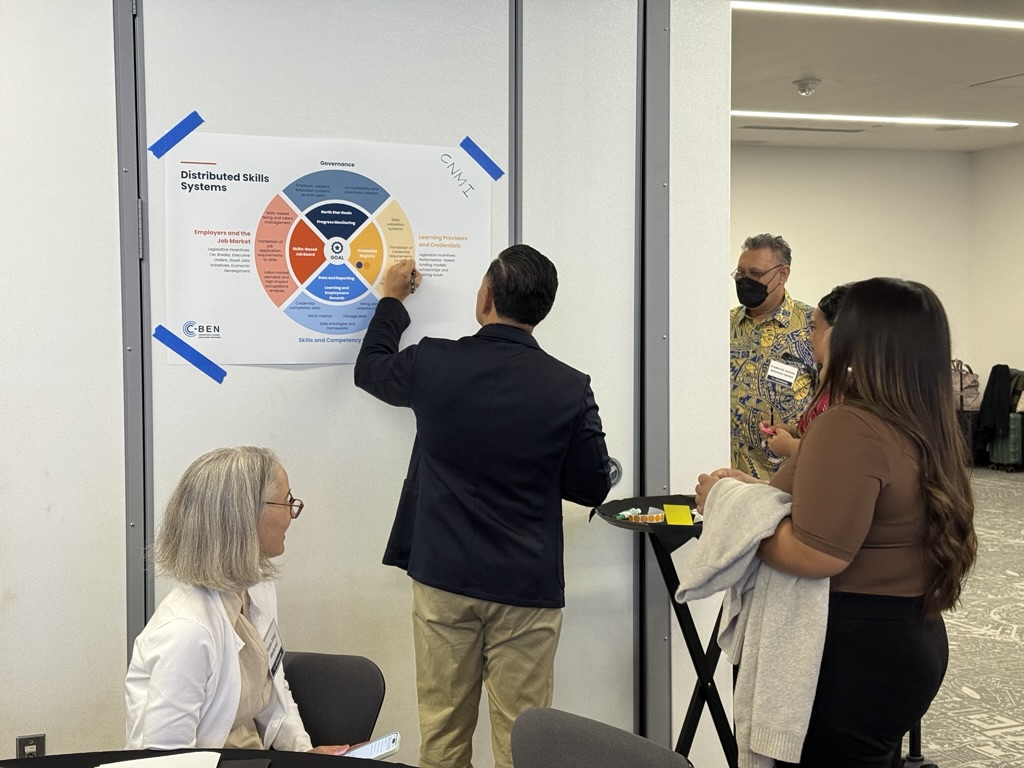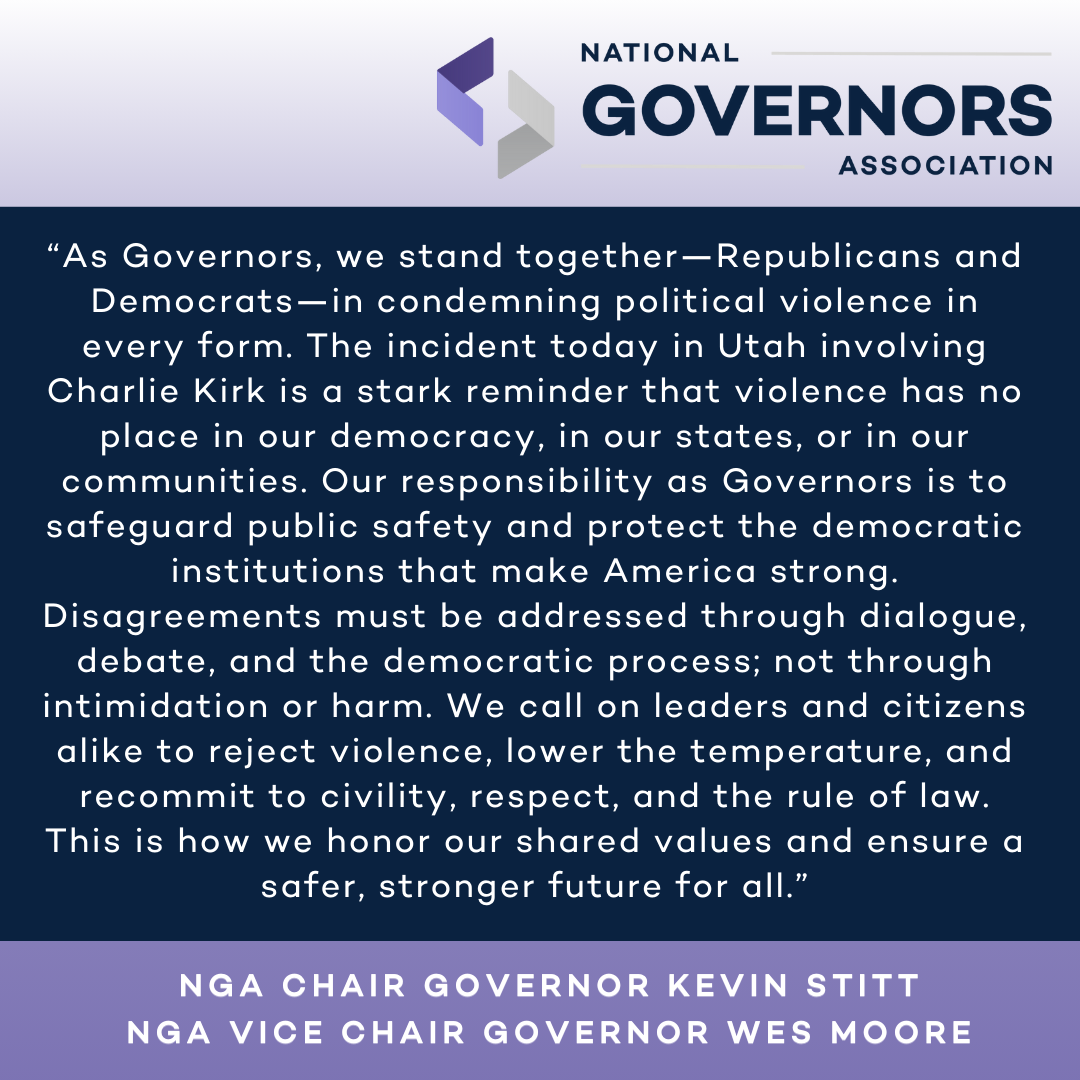Outgoing NGA Chairman Arkansas Governor Asa Hutchinson opened the NGA Summer Meeting with an overview of his 2021-2022 Chairman’s Initiative to expand K-12 computer science education. After announcing the initiative last year, Governor Hutchinson held a series of events to promote his state’s best practices and engage other Governors on their strategies to help increase computer science literacy around the country in order to prepare students for the jobs of today and tomorrow. The event series included a Governor’s roundtable in Denver, a launch event in Washington D.C., a discussion with Fortune 500 CEOs at the NGA 2022 Winter Meeting, a gathering of state education leaders in Bentonville, Arkansas, and a meeting on computer science and the workforce in Boston, Massachusetts.
“Computer science education is an urgent issue that impacts so many of our priorities as Governors – including economic development, job creation and homeland security. Bottom line: If we’re not equipping students – of all ages – with computer skills, we’re not preparing them for today’s job market. Governors have demonstrated strong bipartisan leadership in advancing policies to prepare our states and our nation to compete in the 21st century.”
Governor Asa Hutchinson
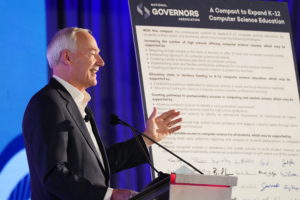
In the plenary session Governor Hutchinson announced that 50 Governors have signed a computer science education compact, committing to strategies for expanding computer science education in schools, including by establishing state plans, providing funds and creating pathways to postsecondary success. Following the release of the compact, the Governor was joined by President of DEKA and Founder of FIRST Dean Kamen and Intel CEO Patrick Gelsinger, who shared their insights on workforce and cybersecurity needs.
Mr. Gelsinger opened the discussion by pointing out that every aspect of modern life is becoming more digital, and that everything digital runs on semiconductors so we should “build them where we want them.” Gelsinger then asked, and answered, the question what does it take to build semiconductors, sharing it takes talent and lots of capital, which is why Intel is extremely focused on education technology initiatives. Mr. Gelsinger shared, to be the best, we need talent and a focus on building a pipeline for the future. He then talked about the importance of the CHIPS Act to support American competitiveness.
“Governors call on the Senate to take up and pass the CHIPS legislation as soon as possible, followed by a speedy vote in the House, to ensure we have the tools necessary to meet the needs of our businesses and the 21st century workforce.”
Governor Asa Hutchinson and Governor Phil Murphy
Dean Kamen described the work of FIRST, a program to inspire young people to be science and technology leaders and innovators. Kamen attributes the shortage of tech workers to a lack of demand, saying “in a free country, you get what you celebrate,” and noting that we don’t celebrate science and engineering in the same way we celebrate sports. This belief inspired FIRST to create a sport around science and engineering, holding competitions that help build science, engineering and technology skills that inspire innovation and foster well-rounded life capabilities.
Virginia Governor Glenn Youngkin opened the Governors discussion by describing Virginia’s efforts in expanding computer science and technical education. The Governor then asked how states can work to keep education and skill-building on the same pace as industry. Mr. Gelsinger noted the importance of educational programs not only teaching what is being done right now, but “shooting ahead of the duck” and including the technologies of tomorrow, using Intel’s AI for Youth program as an example. Kamen talked about using technology to give kids real-time updates and creating a parallel path to learning so they can learn by completing projects they find engaging. Governor Hutchinson added the importance of industry involvement in supplementing formal education through opportunities like internships and apprenticeships.
North Dakota Governor Doug Burgum then turned the conversation to cybersecurity, noting the lack of IT capabilities in state and local governments and efforts North Dakota is taking to fill this gap. Pat Gelsinger noted the investments in cyber systems associated with Y2K, but noted right now we are looking at the next big upgrade moment that they are calling Y2Q – when the first quantum computers are systemically able to produce substantially better results than digital computers.
New Hampshire Governor Chris Sununu then asked for more information on the CHIPS act. Pat Gelsinger then walked through how the bill got to where it is and the paths forward, encouraging Governors to push Congress to follow any one of those paths and get America back to dominance in the semiconductor industry. Massachusetts Governor Charlie Baker and Arizona Governor Doug Ducey then also encouraged Congress to take action, even if it means passing a “skinny” version that just encourages chip production. Dean Kamen jumped in to encourage that education and workforce development be included in the bill.
Watch the full session below and for more information visit https://www.nga.org/computerscience/.

